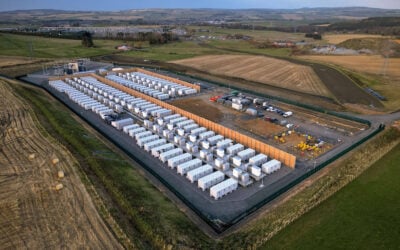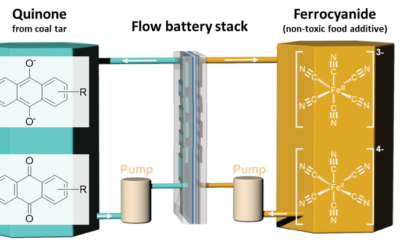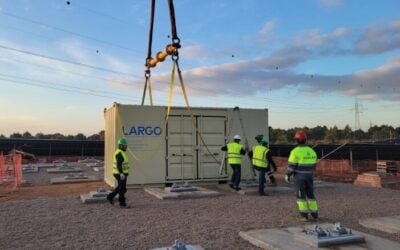
UK power generation firm Drax will not bid its Cruachan II pumped hydro energy storage (PHES) project into the LDES cap and floor scheme, saying that costs have risen while ‘recoverability of capital’ is unclear.
The UK government recently launched the first window of its long-duration energy storage (LDES) cap and floor scheme to underwrite revenues and reduce investor risk for projects deliverable between 2030 and 2033, with applications due by 9 June, 2025.
This article requires Premium SubscriptionBasic (FREE) Subscription
Enjoy 12 months of exclusive analysis
- Regular insight and analysis of the industry’s biggest developments
- In-depth interviews with the industry’s leading figures
- Annual digital subscription to the PV Tech Power journal
- Discounts on Solar Media’s portfolio of events, in-person and virtual
Or continue reading this article for free
Drax however today (1 May) said it would not participate in this first phase of the cap and floor scheme with the 600MW Cruachan II project, an extension of the existing 440MW Cruachan pumped storage plant. The firm completed initial design and engineering work on an option to extend it last year.
‘The projected cost of Cruachan II has risen over the past two years, whilst at the same time, the recoverability of all capital invested in the project remains unclear. Therefore, Drax will not participate in this first phase of the cap and floor scheme but will retain the option for potential future development, subject to an appropriate balance of risk and return,’ it said in a trading update.
The company believes the project is aligned with the long-term system need in the UK for flexible generation and energy storage and its location in Scotland is ideal given the cross-border constraints, with lots of wind generation in and around Scotland but big demand centres being south of the border. The firm first applied to expand Cruachan in 2022.
The decision to pulled Cruachan from the scheme is interesting considering that a collection of the UK’s short-duration battery energy storage system (BESS) owner-operators have recently signalled their opposition to the LDES cap and floor in an open letter, saying it is biased towards pumped storage. Cruachan II has been one of the most high-profile pumped storage projects expected to bid in.
We published an interview with one of the signatories, James Basden, founder of Zenobē, yesterday (Premium access), in which he argued the LDES cap and floor is the wrong approach to securing resiliency for the grid of the future.
Read Next
Copenhagen Infrastructure Partners (CIP) will divest a 50% ownership stake in its 500MW Coalburn 1 BESS to alternative investor AXA IM Alts.
Leading BESS owner-operators in the UK have signalled their opposition to the government’s cap and floor support scheme for long-duration energy storage (LDES) in an open letter. We spoke to one its signatories James Basden, founder of Zenobē, about why.
Australia’s MGA Thermal has completed what it claims is the world’s first industrial steam heat energy storage demonstrator project.
Flow battery startup Quino Energy and developer Long Hill Energy Partners have been awarded US$10 million in grant funding by the California Energy Commission (CEC) to support a 8MWh flow battery energy storage system (BESS) project in Lancaster, California, US.
Most Popular
Email Newsletter
This site is operated by a business or businesses owned by Informa PLC and all copyright resides with them. Informa PLC’s registered office is 5 Howick Place, London SW1P 1WG. Registered in England and Wales. Number 8860726.






